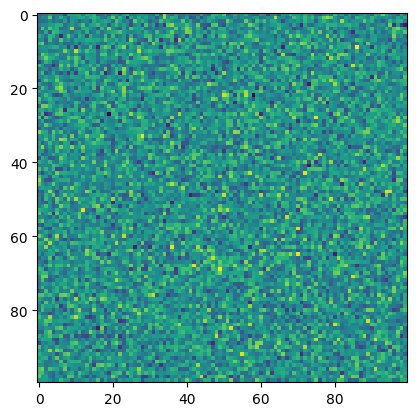Theme-specific elements#
This page contains a number of reference elements to see how they look in this theme. The information is not meant to be easy to read or understand, just browse through and see how things look!
Full-width elements#
Code cells#
## A full-width square figure
fig, ax = plt.subplots()
ax.imshow(square)
<matplotlib.image.AxesImage at 0x7f5b92423f10>

## A full-width wide figure
fig, ax = plt.subplots()
ax.imshow(wide)
<matplotlib.image.AxesImage at 0x7f5b65dfe350>

# Now here's the same figure at regular width
fig, ax = plt.subplots()
ax.imshow(wide)
<matplotlib.image.AxesImage at 0x7f5b65dfd7e0>

Markdown#
This is some markdown that should be shown at full width.
Here’s the Jupyter logo:

Note
Here’s a full-width admonition!
Mathematics#
Link to above: (5)
Link to above: (6)
- \[ \mathcal{O}(f) = \{ g | \exists c > 0, \exists n_0 \in \mathbb{N}_0, \forall n \geq n_0 : [g(n) \leq c \cdot f(n)]\}\]
A really long math equation
Full width equations work
Margins#
Margin content can include all kinds of things, such as code blocks:
as well as admonitions and images:
Margin under lower level shouldn’t have different left-alignment#
Margins with full-width content#
Note
This is my test
Let’s see what happens
## code cell in the margin with output
fig, ax = plt.subplots()
ax.imshow(wide)
<matplotlib.image.AxesImage at 0x7f5b65dfd810>

More content after the margin content#
This is extra content after the margins to see if cells overlap and such. Also to make sure you can still interact with the margin content. This is extra content after the margins to see if cells overlap and such. Also to make sure you can still interact with the margin content.
a = 2
This is extra content after the margins to see if cells overlap and such. Also to make sure you can still interact with the margin content. This is extra content after the margins to see if cells overlap and such. Also to make sure you can still interact with the margin content. This is extra content after the margins to see if cells overlap and such. Also to make sure you can still interact with the margin content.
Figures with margin captions#
The margin-caption class should cause a figure’s caption to pop out to the right.

Fig. 10 And here is my figure caption, if you look to the left, you can see that COOL is in big red letters. But you probably already noticed that, really I am just taking up space to see how the margin caption looks like when it is really long :-).#
Note
This note should not overlap with the margin caption!
Entire figures in the margin:

Fig. 11 This figure should be entirely in the margin.#
Sidenotes and marginnotes#
Here’s a sentence1Test sidenote 1. with multiple 2Test sidenote 2. sidenotes.
Here’s a sentence Test marginnote 1. with multiple marginnotes Test marginnote 2..
Sidenotes inside of admonitions should behave the same:
5Sidenote defined in the admonition.6Sidenote defined outside the admonition.Note
An admonition with a sidenote defined in the admonition5Sidenote defined in the admonition. and another defined outside of the admonition 6Sidenote defined outside the admonition..
Nested admonitions#
These aren’t theme-specific, but we still show below to make sure they work.
Note
Here’s a note!
Tip
And a tip!
MyST Markdown elements#
Here are a few design elements to show off MyST Markdown.
Table alignment#
To ensure that markdown alignment is rendered properly.
Default Header |
Left Align |
Right Align |
Center Align |
|---|---|---|---|
Cell 1 |
Cell 2 |
Cell 3 |
Cell 4 |
Cell 1 |
Cell 2 |
Cell 3 |
Cell 4 |
List table width#
Testing list tables take width as expected.
a |
b |
c |
d |


